Explore our multiple pathways to lasting recovery at our mental health & addiction treatment center in Florida at Calusa Recovery.
In the realm of mental health, panic attacks form a tempestuous phenomenon that can leave individuals feeling as if their world is unraveling. These intense surges of fear and anxiety can strike without warning, engulfing both mind and body in a whirlwind of distress. In this blog, we’ll unravel the enigma of panic attacks, exploring their origins, manifestations, and impact on daily life. Join us as we shed light on this often-misunderstood aspect of mental health and uncover strategies to weather the storm with resilience and strength.

At Calusa Recovery, we understand the profound impact that panic attacks can have on your well-being. Our comprehensive approach to mental health encompasses tailored treatment options designed to help you regain control over your life. Through evidence-based therapies, personalized strategies, and compassionate support, we guide you on a transformative journey towards managing and overcoming panic attacks. Join us as we empower you to navigate the path to lasting calm and emotional resilience.









Panic attacks can manifest with a variety of distressing physical, emotional, and cognitive symptoms. Here are some common symptoms associated with panic attacks:
It’s important to note that panic attacks can vary in intensity and duration. While the symptoms can be distressing, they usually peak within a short period, typically around 10 to 15 minutes, and then gradually subside. If you or someone you know is experiencing panic attacks, seeking professional help can provide effective strategies for managing and reducing the impact of these episodes.
Have more questions?
Contact our admissions team at 866.939.6292
At Calusa Recovery, we focus on treating a wide range of mental health and substance use issues.
Our approach emphasizes tailored treatment plans that use effective and holistic strategies, promoting lasting recovery for our clients.



Panic attacks can be addressed through a range of approaches. Typically, a blend of medication and therapeutic interventions is utilized.
Numerous anti-anxiety medications are accessible, and certain antidepressants have proven efficacy.
Diverse therapeutic methods are available for managing panic attacks, with talk therapy or psychotherapy being a common choice. Cognitive Behavioral Therapy is frequently integrated to facilitate shifts in both thought patterns and behaviors.
Addressing panic attacks requires proactive steps to regain control. If you’re grappling with persistent panic attacks, consider these practical strategies to overcome them:
Understanding Irrational Anxiety: Recognize that anxiety might be disproportionate to the situation at hand. If you’re experiencing anxiety without a clear cause or in seemingly non-threatening scenarios, seeking guidance can be beneficial.
Break the Cycle: Challenge the ongoing nature of anxiety by adopting relaxation techniques such as deep breathing, progressive muscle relaxation, or mindfulness. These methods can interrupt the cycle of escalating panic.
Reach Out for Support: If panic attacks are extending beyond brief episodes, consult a mental health professional. They can provide tailored coping strategies to manage the frequency and intensity of attacks.
Promote Functionality: Work on gradually reintegrating yourself into daily activities. Begin with manageable tasks, and as you build confidence, you’ll likely notice a reduction in panic attack occurrences.
Healthy Coping Mechanisms: Replace the urge to self-medicate with healthier alternatives. Engaging in physical activity, practicing mindfulness, or pursuing creative interests can offer constructive outlets.
Nurture Relationships: Communicate your struggles with friends and family. Sharing your experiences can foster understanding and empathy, potentially alleviating stressors that contribute to panic attacks.
Attend to Physical Health: Prioritize adequate sleep, a balanced diet, and regular exercise. These practices contribute to a more resilient body and mind, helping mitigate panic triggers.
Reclaim Enjoyment: Consciously engage in activities you once loved, even if anxiety-related thoughts arise. Gradually exposing yourself to these experiences can diminish their power over time.
By acknowledging the signs, seeking support, and implementing these strategies, you can regain mastery over panic attacks and rediscover a life marked by tranquility and well-being.
We work with most major insurance carriers to help provide affordable, accessible treatment options to those who need it most. Our admissions coordinators can answer all of your questions. Call for a confidential assessment and insurance verification.






Dealing with panic attacks can be an overwhelming and isolating experience. At Calusa Recovery, we understand the impact panic attacks can have on your life, and we’re here to help you navigate through them with our specialized outpatient panic attack treatment program. Let’s delve into how our program can provide the support and tools you need to regain control over your mental well-being.
Understanding Outpatient Panic Attack Treatment: Our outpatient panic attack treatment is designed to offer flexible and effective care that fits seamlessly into your daily life. We recognize that seeking treatment doesn’t necessarily mean putting your life on hold. Our program allows you to receive the support you need while still maintaining your commitments, responsibilities, and routines.
Personalized Approach: At Causa Recovery, we know that everyone’s experience with panic attacks is unique. That’s why our approach is highly personalized. Your journey begins with an in-depth assessment where we gain insights into your triggers, symptoms, and goals. This information guides the development of a tailored treatment plan that addresses your specific needs.
Evidence-Based Interventions: Our outpatient program integrates evidence-based therapeutic interventions that have proven effective in managing and reducing panic attacks. Cognitive Behavioral Therapy (CBT) is a cornerstone of our approach. Through CBT, you’ll learn to identify and challenge negative thought patterns, develop healthy coping strategies, and gradually confront triggers in a controlled and supportive environment.
Practical Coping Skills: We equip you with practical skills that empower you to navigate panic attacks with confidence. From deep breathing exercises to mindfulness techniques, you’ll learn how to regulate your anxiety and regain a sense of calm even in the midst of distressing situations.
Ongoing Support: Throughout your journey with us, you’ll receive ongoing support from our experienced and compassionate team of professionals. Regular therapy sessions, progress assessments, and adjustments to your treatment plan ensure that you’re consistently moving towards your goals.
A Step Towards Lasting Wellness: Our outpatient panic attack treatment isn’t just about managing panic attacks in the moment. It’s about equipping you with the tools and strategies you need for long-term emotional well-being. We’re committed to helping you build resilience, prevent relapses, and lead a life that is free from the grip of panic. Don’t let panic attacks dictate your life. Calusa Recovery’s outpatient panic attack treatment can be the transformative step towards embracing calm, regaining control, and discovering a renewed sense of well-being. Reach out to us today to start your journey towards a brighter future.
Looking for specialized ADD/ADHD treatment in Florida? Turn to the in-state experts at Calusa Recovery. We place a top priority on helping those with ADD/ADHD. For more information on our approach, just contact us today.

